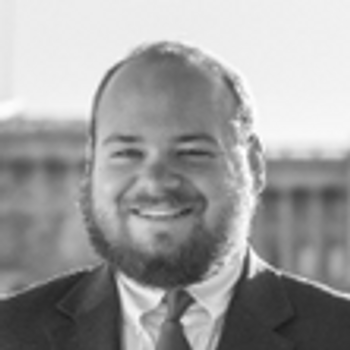HRC condemns Hopkins study as 'attack on LGBT communities'
Students and faculty at Johns Hopkins University joined with the Human Rights Campaign to demand that the school repudiate a study they call “a misguided, misinformed attack on LGBT communities.”
The study, published in August by Dr. Lawrence S. Mayer and Dr. Paul McHugh, two Johns Hopkins scholars, concluded that there is very little evidence to suggest that children are born gay, suggesting that “biological differences [between heterosexuals and non-heterosexuals] are not sufficient to predict sexual orientation.”
Outraged by the article’s implications, nearly 700 individuals (including 200 students) signed a petition demanding that the university disavow the “false” conclusion presented by the researchers.
“This misguided, misinformed attack on LGBT communities under the protection of the Hopkins name must stop,” the petition demands. “McHugh is acting against the recommendations of the American Medical Association and the American Psychiatric Association and, as such, is acting on his own personal agenda and not one rooted in evidence.”
[RELATED: Marist: Playing Duke in b-ball doesn’t mean we hate LGBT community]
Inspired by the petition, LGBT rights group The Human Rights Campaign (HRC) threw its support behind the effort, as well, condemning the study in a press release as an attack on the LGBT community due to its suggestion that gay and transgender individuals may not have been “born that way.”
The study concedes that there can be some genetic influence over sexual desire, but that there is no proof that it is the cause, pointing out that there is a very strong cultural influence on sexual desire and that sexual desire does change over time. The authors also observe that sexual abuse victims are more likely to be gay as adults, interpreting that as evidence of a cultural impact on whether someone becomes gay.
[RELATED: Johns Hopkins students: Chick-fil-A a ‘microaggression’ against LGBT community]
The HRC says it has been in contact with the university to demand a statement renouncing the research, and is threatening to retaliate against JHU if there is no response.
“If Hopkins’ leadership ignores their community’s call to correct the record—clarifying that McHugh and Mayer’s opinions do not represent it, and that its healthcare services provided reflect the scientific consensus on LGBTQ health and well-being—its Healthcare Equality Index score will be reduced substantially,” the HRC statement warns.
Notably, the study actually does address concerns related to the unique healthcare needs of the LGBT community, acknowledging that sexual minorities have higher rates of depression, substance abuse, and suicide. Rather than considering those conditions solely as symptoms of societal hostility, though, the authors report that underlying mental health issues may also play a factor.
“There is evidence linking some forms of mistreatment, stigmatization, and discrimination to some of the poor mental health outcomes experienced by non-heterosexuals, but it is far from clear that these factors account for all of the disparities between the heterosexual and non-heterosexual populations,” they argue. “Those poor mental health outcomes may be mitigated to some extent by reducing social stressors, but this strategy is unlikely to eliminate all of the disparities in mental health status between sexual minorities and the wider population.”
[RELATED: STUDY: Gender-neutral tenure policies harm women]
Johns Hopkins Medicine issued a statement in response to the HRC stressing that its “commitment to the LGBT community is strong and unambiguous,” but also affirming its commitment to academic freedom, which includes allowing its scholars to pursue their research without interference from the administration.
“[A]s an academic medical research institution, academic freedom is among our fundamental principles—essential to the self-correcting nature of scientific inquiry, and a privilege that we safeguard,” the statement asserts. “When individuals associated with Johns Hopkins exercise the right of expression, they do not speak on behalf of the institution. As set forth in the Johns Hopkins University Statement of Principles on Academic Freedom, academic freedom ‘is designed to afford members of the community the broadest possible scope for unencumbered expression, investigation, analysis, and discourse.’”
Campus Reform did not receive a response for comment from Johns Hopkins University as of the time of publication.
(H/t: The Christian Post)
Follow the author of this article on Twitter: @TylerArnold18

